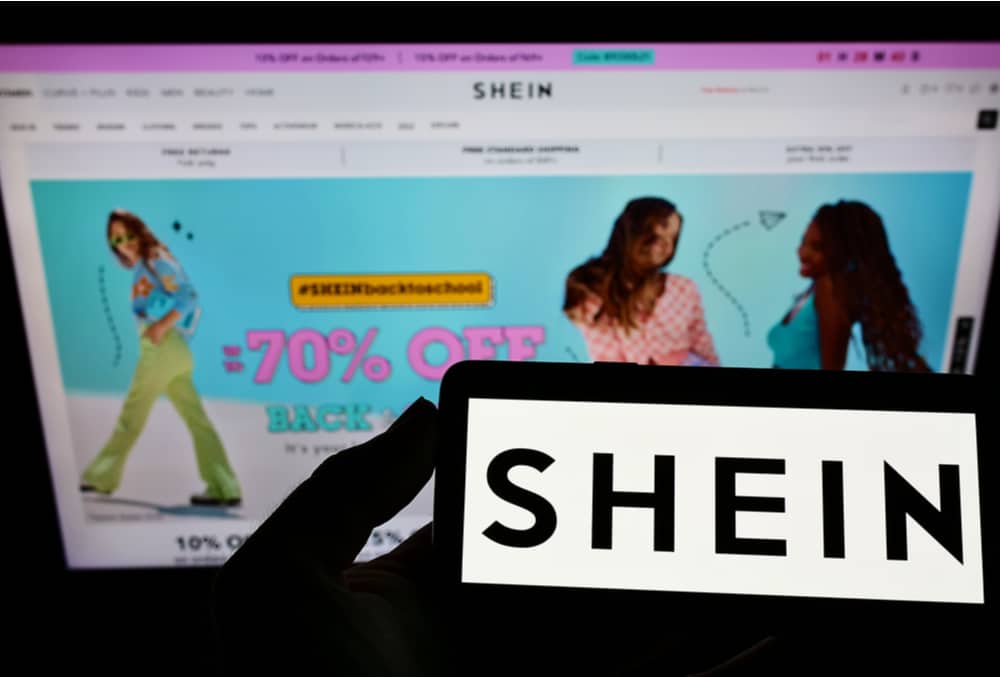Since 2008, Shein has rapidly grown into a leading retail company. The company prides itself on providing an opportunity for everyone to enjoy the beauty of fashion.
Their strategy is centered around offering the most on trend clothing at low and affordable prices. They have a massive influencer following and as an e-commerce company they have really built up their fan base over the years.

However, their ability to churn out such large amounts of clothing at such low prices leads us to beg the question of its legitimacy as an ethical and sustainable company.
To get to the bottom of whether Shein is sustainable, this post will review how ethical the company is.
Overview Of Shein
Shein is a global fast fashion company. It was founded in China in 2008 and has since grown exponentially. Shein’s rapid growth has come about as a result of the increased use of online shopping and the growth of social media.
The fast fashion e-commerce store specializes in selling on-trend clothing at low prices. They sell everything from clothing and accessories to shoes and a range of other fashion items.
What impact does fast fashion have on the environment?
Fast fashion has a lasting damaging effect on the environment. The industry poses threats that impact water usage, deforestation, animal and human health.
The byproduct from the production of clothing made from harmful chemicals and dyes can lead to the leaching of toxic wastewater which is harmful to both human and aquatic life.
The use of virgin plastics and unsustainable synthetic fibers can lead to the leaching of microfibers and microplastics in waterways. It can also cause leaching and contamination every time you wash your clothes. Again, this can have harmful effects on humans and animals.
The fast fashion industry is harmful to the entire ecosystem, including the woodland. The use of materials such as wool is sourced from goats and sheep that are overgrazed in farmland.
The increased demand for these materials leads to land degradation, deforestation, and soil erosion. All of which contribute to the loss of animal and plant life as well as cause food shortages and famine for surrounding communities.
Is Shein Sustainable?
Fast Fashion
Shein is considered to be a fast fashion company with an extremely high rate of production. Fast fashion is established as a leading contributor to increasing carbon emissions and wastewater.
Shein is established on the philosophy that they deliver the most on trend clothing at the lowest prices. However, trends change in an instant lasting a matter of months, weeks, or even days.
Promoting the latest trends in this way inevitably leads to an increase in sales which significantly increases the rate of production. The result is frequent mass production.

Shein is known to offer about 50-100 batches of clothing on its website and lists about 500 new items daily. Not only is this an unsustainable practice, but it also has potentially damaging effects on the environment.
Mass production also promotes a disposable culture as it encourages people to purchase the newest and latest products. This contributes to a mindless throwaway attitude that can be damaging to the environment.
Additionally, although they offer the trendiest clothes at the lowest prices… Low prices come at a cost.
As each item of clothing is made from poor quality material and is not designed for longevity, many find that clothes purchased from Shein do not last long and that the quality of the clothing can be poor.
Not only is this a waste of material, it encourages people to buy more, knowing that their clothes aren’t going to stand the test of time.
Material
Shein clothing is mostly made from virgin synthetics such as polyester. These materials are not kind to the environment as they are made from plastic. Not only is the material harmful as it contributes to the leaching of microplastics on disposal, but the process of making the clothing is also equally as damaging.
Clothing production is one of the largest contributors to the climate crisis.
Shein’s clothing production includes the release of hazardous chemicals and carbon emissions caused by the release of fossil fuels and toxic chemicals from the clothing dyes.
But, it’s not just the clothing and the production that’s the problem…Being one of the largest global retailers, it’s no surprise that Shein ships its products all over the world.
However, this wouldn’t be such a problem if they had sustainable initiatives in place or at least environmentally packaging. Yet, they do none of the above.
They ship endlessly with no sustainability measures in place and each product is packaged in an unrecyclable plastic bag.
Animal Welfare
One feature of Shein that could be said to be sustainable is that they don’t use leather or animal products in their clothing. However, they do use wool. There have been questions surrounding the wool that is used for products as it is not mentioned where the wool is sourced from.
The lack of clarity and transparency leads to questions of whether their materials are ethically and sustainably sourced. They also do not offer cruelty-free items which lead to questions of whether the material they use is ethically sourced.
Social Responsibility
Transparency
The biggest problem with Shein and the questions surrounding its ethics and sustainability is backed by a lack of transparency. In today’s age, corporate social responsibility is something that’s expected.
This includes the transparency of honestly sharing finances, policies, and practices. Being transparent helps companies to build a stronger brand. It also helps to build trust and confidence with customers.
With so many companies willingly giving honest information to their customers, the companies that don’t are left to be questioned on why they’re not. With a standard of expectation set, there is no longer an excuse for companies to conceal information such as living wages and their supply chain.
Shein claims that they are an ethical company that has put measures in place to ensure that there is no forced labor, that their working environment is safe, and that people are paid fairly.
Whilst these are all admirable claims, they come with little backing. Shein doesn’t have the relevant certifications to back their claims as they are not certified by the SAI (Social Accountability International).
SAI is responsible for certifying the measures put in place for areas including forced child labor and the health and safety of workers. As Shein is such a large organization, it could be questioned as to why they don’t have the relevant certification.
Additionally, transparency is also lacking in other areas of the company. For instance, they state how some of their products are recycled, however, they fail to mention a recycle program or how and where they recycle their products, and how many they recycle.
They also fail to be transparent about their supply chain and their labor conditions and employee wages.
Shein has also been questioned publicly on ethical matters. They were criticized for selling Muslim prayer mats with symbolic meaning and described them as ‘Greek carpets.’ This appropriation would have been offensive to a lot of people. They were eventually forced to withdraw these items from their website.
They have also been accused of copyright infringement for using the designs of an independent company. These malpractices inevitably lead to the question of how ethical the company is.
Cost
Whilst we’ve established that there is little transparency surrounding the cost of how much workers are paid for their labor, there is also a question of how cheap the products are.
With prices so low, it could be said that the company is encouraging people to consume more and overbuy, using it as a tactic to increase sales.
Pros
- Whilst Shein is associated with unethical and unsustainable practices, they do offer some benefits. They are considered to be one of the most size exclusive retailers offering options for all.
- By setting clothes at lower prices they offer people with a lower budget an opportunity to get the latest clothing.
- They stick to their word in making clothes affordable for all sizes as well as for those with lower budgets. They may just go about it in the right way…
Final Considerations
So, from taking a closer look at Shein, we can see that the company is not sustainable.
They fail to put secure and measured sustainability policies in place. There appears to be minimal effort to employ sustainable practices and instead, a focus on driving the promotion of increased consumerism.
Whilst the company states that they have ethical practices in place, their lack of certified backing and lack of transparency in numerous areas show that the company has quite a way to go in its attempt to improve its level of sustainability.
However, by employing a strategy for sustainability, putting sustainable initiatives in place, and taking corporate social responsibility, there’s nothing to say that Shein could turn it around.
With all of the tools at their disposal, Shein could move toward becoming more ethical in practice rather than just on paper.
- What Is Inseam And Why Does It Matter? - September 9, 2022
- Sneaker Ball Attire Ideas - September 7, 2022
- What To Wear To A Brewery - September 6, 2022
